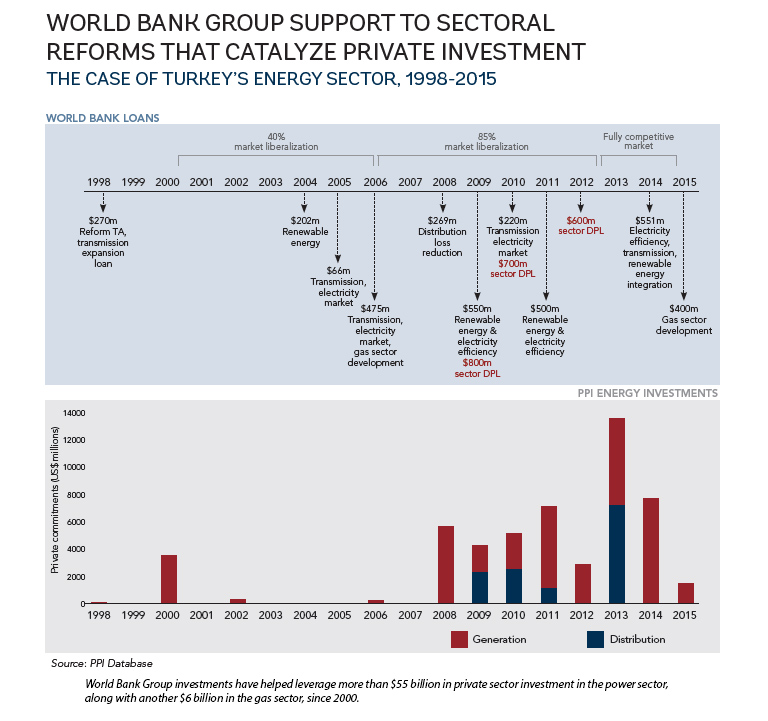“Electricity is everything! It is technology—without it, life stops! You can’t run the washing, watch the TV, you can’t clean, you are nothing!” Fatma Ayaz, a coffee shop owner in Bilecik, Turkey, gets straight to the point. In her daily life, she counts on affordable electricity both to run her household and to serve her customers. In a larger sense, this need for energy access is fundamental to all economic growth.
about 7 percent annually in recent years, requiring steady efforts to expand the sources of reliable and clean power. Through a series of interlinked measures, starting in the early 2000s, the country has worked to meet this growing demand, while spurring private-sector investment and innovation. And it has turned to the World Bank Group for help throughout.
What does it take to transform a sector, to meet a country’s needs while ensuring long-term sustainability? Turkey’s electric power sector, where the Bank Group has been closely involved for more than two decades, provides a perspective on what’s involved and how we can help.
Crisis and opportunity
In 2000-2001, Turkey faced a major economic crisis. Among many other challenges, it highlighted the liabilities of the country’s initial privatization efforts in electric power. Some of the deals with private investors that the government had set up in the 1990s were structured in ways that couldn’t weather the crisis. The government was forced to cancel some of its contracts, with several cases going to ICSID, the World Bank Group arm that handles international investment disputes.
In the words of a World Bank official who was working on our Turkey portfolio at the time, it was “a period that broke the backs of the private sector”— in particular, the private firms that had begun investing in the country’s electricity sector.
But in fact, the World Bank Group wasn’t new to the situation when the crisis hit. Our advice had been one of the inputs as Turkey’s government assessed its options in the 1990s for bringing private players into electric power. While the government’s initial model for privatization didn’t prove to be crisis-proof, we stayed with them in the downturn, and the crisis renewed our determination to help come up with more sustainable solutions. With time, this partnership has led to more stable, equitable private involvement in the sector.
In looking back over these years, what were the elements that helped drive this transformation?
